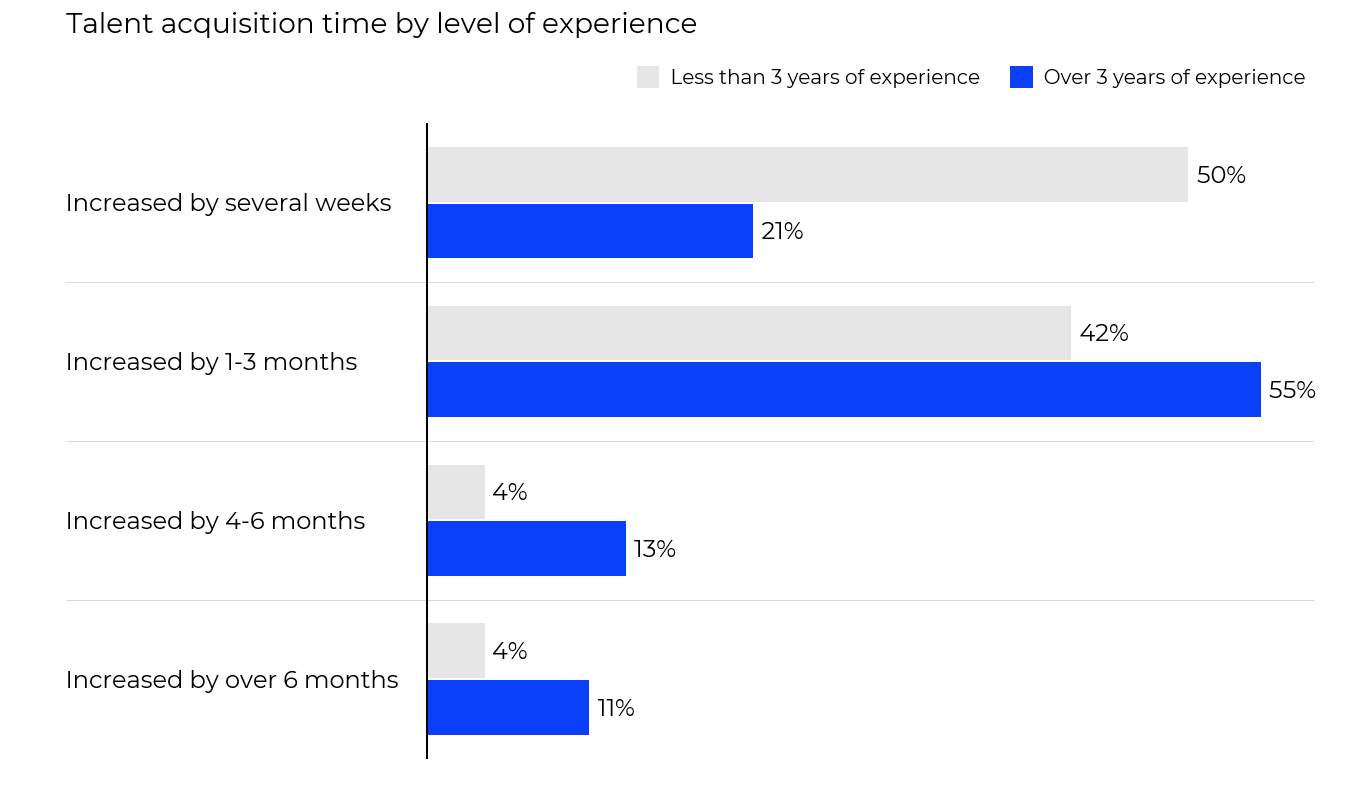Labor Market Trends – 2023, a new study by Yakov & Partners and hh.ru, the largest Russian online recruitment platform, finds that more than half of the employers have encountered shortages of IT talent: it now takes twice as long to find the right candidate for IT positions as it used to (in contrast, the average talent acquisition time across other industries increased 1.5 times).
While 6% of the employers believe talent acquisition times somewhat decreased in 2022, more than half of them report the opposite: it now takes more than three months to fill the bulk (88%) of vacancies vs. two months earlier.
61% of the employers have faced difficulties finding the right talent with strong IT competencies; professionals with programming and web development (19%), digital marketing (16%), and app development (14%) competencies seem to be in the shortest supply.
Given the preferences of the jobseekers, offering a nice salary is still the quickest way to find a fitting candidate. Three-quarters of the employers offering attractive remuneration levels manage to find the right fit in under 3 months.
“Finding the right talent with relevant experience is the most challenging task. It now takes on average 4 to 6 months to find candidates with 6+ years of experience. Obviously, those are people holding managerial or expert positions with a wealth of experience dealing with crises. All this inevitably leads to lower overall company performance. It is noteworthy that despite the longer search times, employers still prefer experienced hires: 84% of the employers would choose an experienced candidate without a relevant degree over a candidate with a degree but without relevant experience,” says Natalia Danina, chief labor market expert at Headhunter Group.
Companies in the IT, retail, and finance sectors seem to be the most interested in experienced professionals. All the employers from these sectors that took part in our survey would opt for an experienced candidate even if they have no relevant degree.
Among the other trends that have impacted the employers and the labor market in general, are automation (25%), mobility and migration (22%), and geopolitical and economic environment (22%). The trends that have the least impact on companies include those related to entrepreneurship and initiative (15%), inclusion (5%), and the environmental agenda (5%).
One way companies could make up for insufficient resources is to automate certain processes, yet 63% of the companies admitted they were not yet ready to do so.
"Job seekers are more acutely aware of the impact of technology, artificial intelligence, robotics, and automation on their lives and competitiveness. Even in non-IT industries, one in two employees report feeling such impact. Given the difficulty of attracting experienced talent, as well as the apparent demand for training from employees, companies need to build up their capabilities in corporate education to create an attractive employer image and, ultimately, reduce the cost of attracting and retaining employees. Today only 27% of companies are taking active steps in this regard. To put this in perspective, in the U.S., for example, every second company has a personnel development and training strategy," comments Elena Kuznetsova, a partner with Yakov & Partners and a co-author of the report.
The most popular forms of employee training in Russia are on-the-job training, reimbursement for online training programs (extension courses, open online courses), as well as conferences and workshops.
The research spanned more than 7000 job seekers and more than 220 employers from all over Russia.




